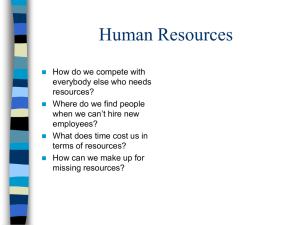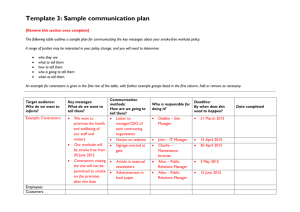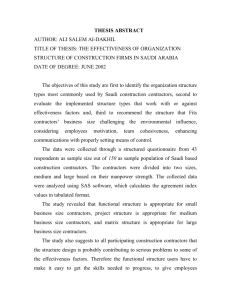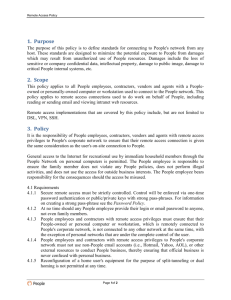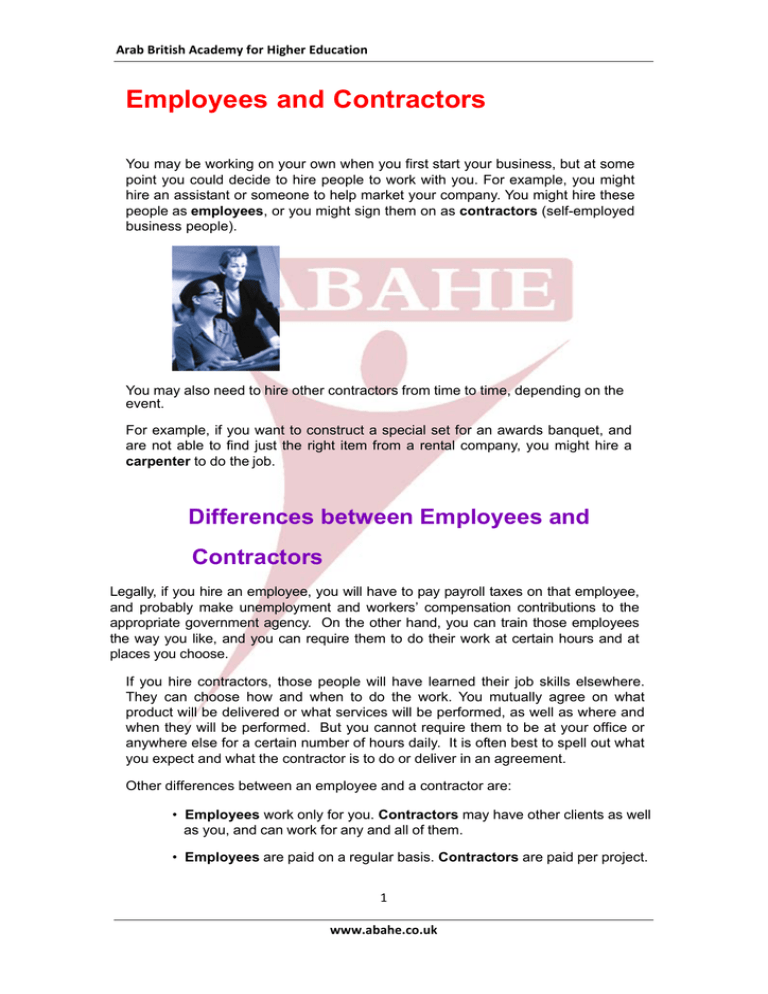
Arab British Academy for Higher Education Employees and Contractors
You may be working on your own when you first start your business, but at some
point you could decide to hire people to work with you. For example, you might
hire an assistant or someone to help market your company. You might hire these
people as employees, or you might sign them on as contractors (self-employed
business people).
You may also need to hire other contractors from time to time, depending on the
event.
For example, if you want to construct a special set for an awards banquet, and
are not able to find just the right item from a rental company, you might hire a
carpenter to do the job.
Differences between Employees and
Contractors
Legally, if you hire an employee, you will have to pay payroll taxes on that employee,
and probably make unemployment and workers’ compensation contributions to the
appropriate government agency. On the other hand, you can train those employees
the way you like, and you can require them to do their work at certain hours and at
places you choose.
If you hire contractors, those people will have learned their job skills elsewhere.
They can choose how and when to do the work. You mutually agree on what
product will be delivered or what services will be performed, as well as where and
when they will be performed. But you cannot require them to be at your office or
anywhere else for a certain number of hours daily. It is often best to spell out what
you expect and what the contractor is to do or deliver in an agreement.
Other differences between an employee and a contractor are:
• Employees work only for you. Contractors may have other clients as well
as you, and can work for any and all of them.
• Employees are paid on a regular basis. Contractors are paid per project.
1 www.abahe.co.uk Arab British Academy for Higher Education • Employees work for a certain number of hours. Contractors set their
own hours, as long as they get the job done. That can be great for them if
they are really fast, or not so great for them if they are really slow. As long
as the project is finished on time to specs, it’s great for you. (On the other
hand, if an employee is slow, you may end up paying more salary to get
the job done in overtime, or even hiring temporary help to get things
finished.)
• Employees can be fired or quit. Contractors can’t be fired in the usual
way while they are working under contract. You may decide to have
them stop working on a project, but you will be obliged to pay them
according to your contractual agreement unless you are able to
renegotiate the contract or successfully sue them if you are unhappy
with their work. (Of course that would only be in extreme cases; it is best
to avoid lawsuits altogether!)
Even though you are not writing paychecks to contractors, but rather checks for
contracting fees, there are still tax considerations. For more information about
employment taxes, visit the IRS website.
IRS Employment Taxes
Click on Businesses, then on Employment Taxes
http://www.irs.ustreas.gov
Before you hire anyone, check with your local department of labor to find out all
the rules and regulations required as an employer. Excellent advice on hiring
employees and contractors can also be found at Nolo.com.
Nolo Resource Center
Click on Business and Human Resources, then on Human
Resources http://www.nolo.com
Other state and federal rules and regulations may apply to you, including: health
and safety regulations, Workers’ Compensation, minimum wage and
unemployment insurance. You can find additional information through this link:
Other Considerations
http://www.sba.gov/starting/regulations.html#othercon
Canadian employers must also register with the government and comply with
federal and provincial laws. For information on becoming an employer in Canada,
visit:
Becoming an Employer in Canada
Click on English, then on Becoming an
Employer http://www.cbsc.org/osbw
All Rights Reserved © Arab British Academy
for Higher Education
2 www.abahe.co.uk

